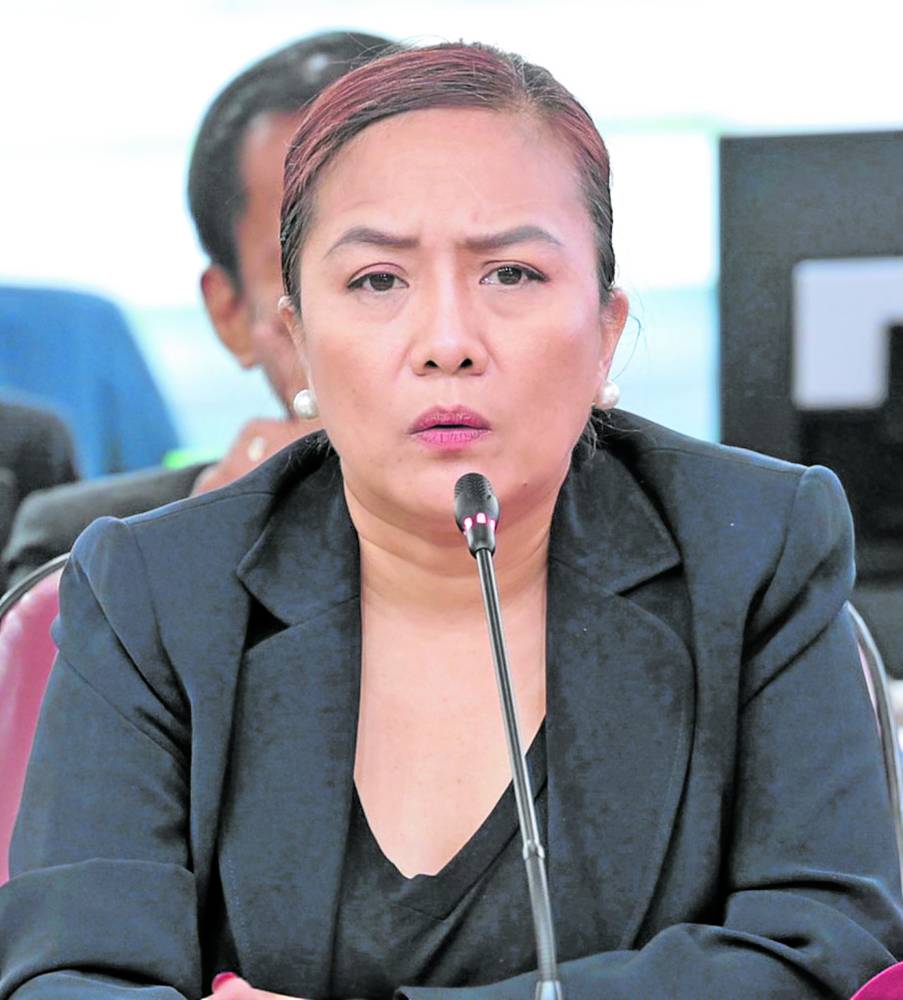Garma says Davao drug war template, rewards system applied in entire PH

GARMA / saved SEPTEMBER 29, 2024 Former PCSO general manager Royina Garma during the House quad committee hearing in this file photo taken on September 27, 2024. HOUSE OF REPRESENTATIVES PHOTO
MANILA, Philippines — Retired police colonel Royina Garma has confirmed that the past administration adopted a so-called “Davao template” in terms of the war against illegal drugs, where officers involved in the killing of drug suspects are rewarded.
Garma, during her testimony at the House of Representatives’ quad committee on Friday, was emotional as she read a supplemental affidavit regarding the drug war. In the affidavit, Garma confirmed that there are three modes of payment or rewards — first, for every suspect killed; second for the planned operations; and third, the refund of operational expenses.
According to Garma, it was former president Rodrigo Duterte who contacted her about the creation of a national task force.
“I was already acquainted with then-Mayor Duterte, having served as a Station Commander in one of the police stations in Davao during his tenure. During our meeting, he requested that I locate a Philippine National Police officer or operative who is a member of the Iglesia Ni Cristo, indicating that he needed someone capable of implementing the war on drugs on a national scale, replicating the Davao model,” Garma said.
“This Davao Model referred to the system involving payment and rewards […] The Davao Model involves three levels of payments or rewards. First is the reward if the suspect is killed. Second is the funding of planned operations. Third is the refund of operational expenses,” she added.
According to Garma, she told Duterte that she is unaware of “any individual with those qualifications” as she has not been assigned outside of Davao. However, she remembered her upperclassman, National Police Commission (Napolcom) Commissioner Edilberto Leonardo who was also a former police colonel, who is a member of the Criminal Investigation and Detection Group (CIDG) and was also a member of the Iglesia Ni Cristo.

“I mentioned his name to the President. On the same day, a certain individual named ‘Muking’ contacted me by phone to request Leonardo’s contact details, which I promptly provided. A week later, I learned from Arthur Narsolis via phone call that Leonardo had been summoned by the President and was instructed to proceed to the Mandaya Hotel in Davao for a meeting,” Garma said.
“Leonardo informed me that he stayed at the hotel for three days, during which the President directed him to organize a task force similar to the PAOCTF. When Leonardo relayed this information and urged me to join the task force, I declined, citing my lack of experience in handling such operations,” she added.
Garma also said that Leonardo told her that he made a proposal outlining the task force’s operations, coursed through Senator Bong Go who was then the special assistant to Duterte.
She also admitted that initially, she facilitated the meetings between Go and Leonardo. Eventually, Garma said that the two men “established direct communication”.
It was also Leonardo who conducted briefings for all Philippine Drug Enforcement Agency (PDEA) officials and even Philippine National Police (PNP) chiefs — even having the final authority on who would be on the watchlist.
“Leonardo conducted briefings for all PDEA, IG, Regional Directors, and PNP Chiefs regarding operations. Additionally, if any individual died during police operations, Leonardo reported the incident to Bong Go for inclusion in his weekly report and requests for refunds of operational expenses,” Garma said.
“Leonardo had the final authority to determine who would be included on the list of drug personalities and to classify their threat levels, as well as the discretion to remove individuals from the list,” she added.
Garma and Leonardo were both invited by the quad committee over rumors that they are linked to different extrajudicial killings.
Garma and Leonardo were both accused of masterminding the death of former Philippine Charity Sweepstakes Office (PCSO) board secretary Wesley Barayuga. During a previous quad committee hearing, Lt. Col. Santie Mendoza said Leonardo contacted him about operating a high-value drug target in the person of Barayuga.
According to Mendoza, he told Leonardo that he would think about the operation, but the Napolcom official said that this operation would bode well for his career.
Mendoza said Leonardo sent him a synopsis that would show how Barayuga, a former police general and a member of the Philippine Military Academy Matikas Class of 1983 was supposedly involved in the illegal drug trade.
READ: Napolcom’s Leonardo, Garma tagged in killing of PCSO Barayuga
But when the former said he would conduct his own study, Leonardo supposedly said that the hit already had the blessings of Garma, who was then PCSO general manager. When they were about to carry out the attack, Mendoza said that Leonardo informed them that Barayuga was inside the PCSO office in Mandaluyong, with Garma sending a photo of the late board secretary.
Leonardo and Garma are two officials believed to have close ties to Duterte.